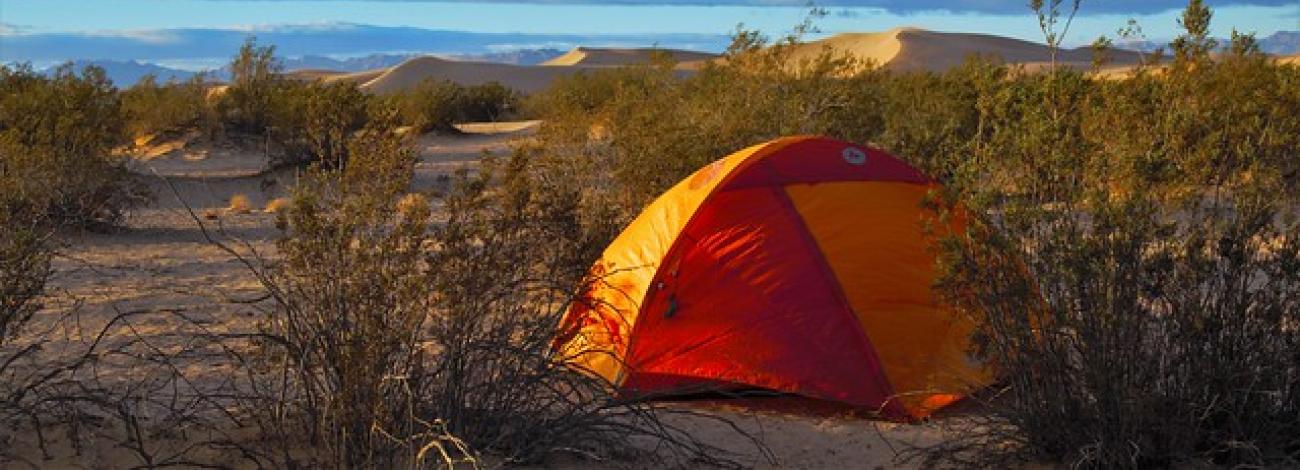
Camping on Public Lands
BLM-managed lands offer numerous opportunities for camping under the stars ranging from staying in an RV at a highly developed campground to simply throwing a sleeping bag on the ground in the backcountry. No matter what type of experience you are looking for, you can find it on BLM-managed public lands.
Developed Campgrounds
At many locations the BLM provides developed facilities for camping. Campgrounds may include a variety of facilities, such as restrooms, potable water, electrical hookups, picnic areas, garbage cans, tent pads and group shelters. However, many campgrounds do not have all of these amenities and may only have a picnic table and fire ring. Make sure to check the campground’s website or call the appropriate field office when planning your trip.
Permits, Fees and Limitations:
- Most BLM campgrounds require a fee to use a campground. These fees help maintain the facilities. Selecting a campsite is usually on a first come first serve basis. However, some campgrounds take reservations which can be made at recreation.gov. Please obey all posted rules specific to the campground and keep the following in mind.
- Fee sites vary in price. Please check the campground’s website or call the local field office for details.
- Camping stay limits vary by location but are generally about two weeks within a month period.
- Pay camp fee within 30 minutes of occupying a site.
- A campsite is rented ONLY once it has been paid in full with the pay-stub properly completed and displayed on site and the site is occupied by campers.
- Do not leave personal property unattended for more than 72 hours (or as specified at each site).
- Due to adverse weather, many campgrounds are only seasonally available. Make sure to check if the campground is open before planning your trip.
Dispersed Camping
Camping on public lands away from developed recreation facilities is referred to as dispersed camping. Most of the remainder of public lands are open to dispersed camping, as long as it does not conflict with other authorized uses or in areas posted "closed to camping," or in some way adversely affects wildlife species or natural resources.
Dispersed camping is generally allowed on public land for a period not to exceed 14 days within a 28 consecutive day period. Camping limitation rules vary per office, please check with your local office for details on camping limitations. In addition, campers must not leave any personal property unattended for more than 10 days (12 months in Alaska).
Campsite Selection
Dispersed camp sites are located along most secondary roads and may not be marked. Popular locations can be recognized by the telltale flat disturbed area that has been used as a camp site before. Not all flat spots are sites. If possible, please use existing sites to avoid creating new disturbances. To further protect your public lands, campers must not dispose of any refuse, hazardous materials, sewage, or in any manner pollute the surrounding area.
States may have additional requirements or restrictions for dispersed camping. Please see Regional Information before planning your trip.
Long-Term Visitor Areas (LTVAs)
The BLM also manages Long-Term Visitor Areas in California and Arizona, where winter visitors may camp up to seven consecutive months with a permit. Locations include Hot Spring, Tamarisk, Pilot Knob, Mule Mountain, Midland, La Posa, and Imperial Dam Long-Term Visitor Areas. Learn more about long-term camping on public lands, and contact the BLM's Yuma, El Centro, or Palm Springs-South Coast field offices for more information.
Report Crimes
Please help preserve our heritage. Treat cultural sites with respect. Do not touch petroglyphs or remove artifacts. Report crimes to resources including vandalism, dumping and suspicious activity at 1-800-637-9152.






